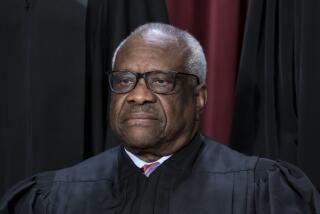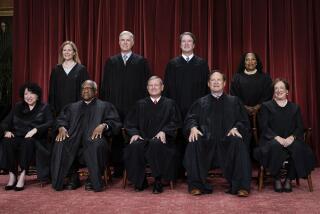Panel Considers Measures to Curb Travel Fraud
- Share via
WASHINGTON — Charles Miller thought he had been offered a good deal last September when he got a post card that promised a free vacation in Florida and the Bahamas if he joined a travel club for only $198.
He gave the Miami-based group his Mastercard number and, after several excuses and more promises from the company, he sent another $300 and finally got his trip--at least to the Bahamas.
When he and his wife arrived--paying another $55 just to look at the hotel room--insects scurried for cover when they opened the door. Mold was growing on the walls and the bed sheets were coated with dried blood.
Hottest Fraud
Most of those seeking vacations from fly-by-night companies offering travel packages do not even get this far. Miller was one of about 10% of the public who actually get trips from such a deal, the latest and hottest form of mail and telephone fraud, which is estimated to have cost the public tens of millions of dollars this year alone.
But Miller, of East Dennis, Mass., Monday told a House subcommittee investigating the scam: “I think those people who didn’t get their vacations are the lucky ones, to tell the truth.”
The Energy and Commerce subcommittee on transportation and tourism, which heard the testimony, is considering measures that seek to stop the fraudulent travel schemes and prevent airlines from using allegedly deceptive advertising of low fares.
Advertising for low air fares has “become the golden opportunity for every con artist in the country to fleece the public by taking advantage of their misconceptions of the cost of travel,” said subcommittee Chairman Thomas A. Luken (D-Ohio).
In addition to consumers, legitimate travel agents say they have suffered because of con operations and misleading airline ads, which have proliferated as the industry adjusts to deregulation.
The Transportation Department has done “a very poor job” in fighting these problems, said Susan Tanzman-Kaplan, owner of Martin’s Travel & Tours in Los Angeles and president of the Southern California chapter of the American Society of Travel Agents Inc.
Seek FTC Jurisdiction
The subcommittee is considering legislation that would shift the responsibility of travel fraud onto the Federal Trade Commission, giving it the enforcement tools to do the job.
But William MacLeod, director of the FTC’s Bureau of Consumer Protection, does not want to impose any additional restrictions, which he says may unduly burden legitimate travel agents.
Instead, he stresses consumer education. “If they aren’t taken, then we don’t have to worry about getting their money back,” he said.
“You mean that you can get consumers to be smarter than the con men?” Luken shot back, saying that the agency’s mission is to crack down on fraudulent schemes.
MacLeod added that he believes the problem is only temporary, brought on because consumers have come to expect no limit on how low air fares can go.
Another agency that may be given more enforcement responsibility is the U.S. Postal Service, which welcomed a bill introduced recently by Rep. Claude Pepper (D-Fla.) that would allow the Post Office to confiscate the business property of those who use the mail fraudulently.
In the meantime, state attorneys general are pursuing the problems but can do little if fraudulent operators are situated out of their states. Because tourism is crucial to his state, Florida Atty. Gen. Bob Butterworth says his office has been particularly aggressive on travel scams, raiding eight outfits, suing five others and investigating 60 more.
More to Read
Sign up for Essential California
The most important California stories and recommendations in your inbox every morning.
You may occasionally receive promotional content from the Los Angeles Times.













